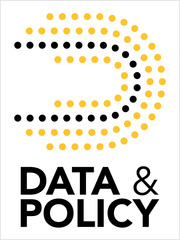The authors have made some minor corrections to the abstract and main text for the purpose of clarity.
In the last three sentences of the abstract, which summarise the findings, the authors have added the phrases ‘became evident’, ‘we observed’ and ‘is noteworthy’.
Given that the abstract is part of the indexed metadata, we have updated the published article. It now reads:
Abstract
The exponential growth of data collection opens possibilities for analyzing data to address political and societal challenges. Still, European cities are not utilizing the potential of data generated by its citizens, industries, academia, and public authorities for their public service mission. The reasons are complex and relate to an intertwined set of organizational, technological, and legal barriers, although good practices exist that could be scaled, sustained, and further developed. The article contributes to research on data-driven innovation in the public sector comparing high-level expectations on data ecosystems with actual practices of data sharing and innovation at the local and regional level. Our approach consists in triangulating the analysis of in-depth interviews with representatives of the local administrations with documents obtained from the cities. The interviews investigated the experiences and perspectives of local administrations regarding establishing a local or regional data ecosystem. The article examines experiences and obstacles to data sharing within seven administrations investigating what currently prevents the establishment of data ecosystems. The findings are summarized along three main lines. First, the limited involvement of private sector organizations as actors in local data ecosystems through emerging forms of data sharing became evident. Second, we observed the concern over technological aspects and the lack of attention on social or organizational issues. Third, a conceptual decision to apply a centralized and not a federated digital infrastructure is noteworthy.
Keywords: B2C data sharing; data-driven innovation; local data ecosystem
In Section 2.1 of the main text (‘Defining data ecosystems’), the authors wish to clarify that the acronym IDC refers to the International Data Corporation.
The section should read:
According to policymakers, the successful coordination among different actors and willingness to share data are crucial to generate value from them, a widely cited market report by the International Data Corporation - IDC (for instance in Kambies et al., 2017), for instance, claims that almost 90% of unstructured data are never used and analyzed and a more recent report estimates that 68% of business data goes unleveraged (reported in Harris, 2020).
We thank the authors for making these clarifications and publish this notice to update the scholarly record.




Comments
No Comments have been published for this article.